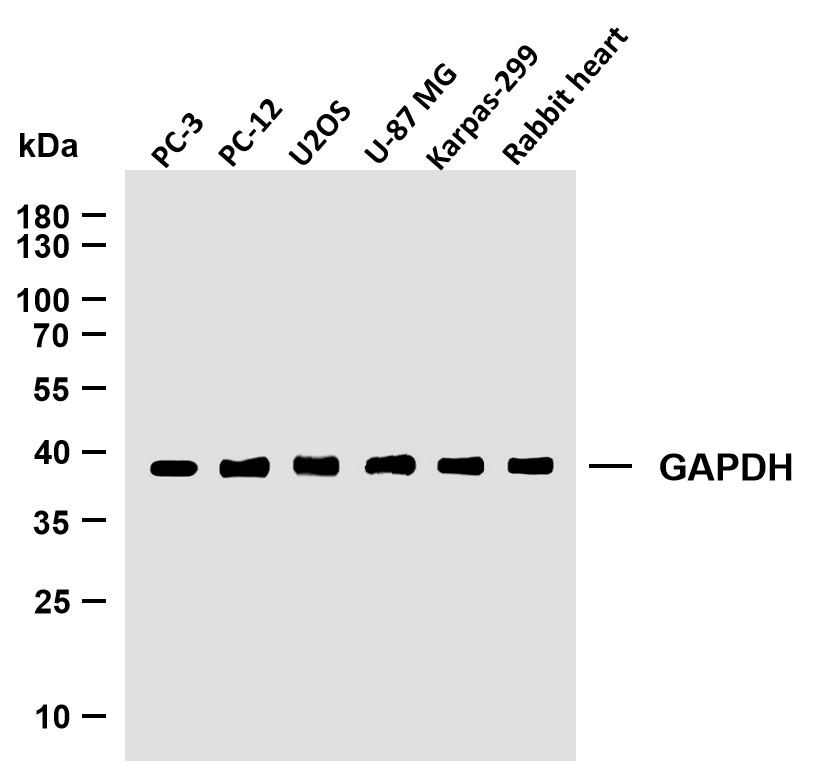
主要信息
Target
TLR5
Host Species
Rabbit
Reactivity
Human, Mouse
Applications
WB, ELISA
MW
94kD (Observed)
Conjugate/Modification
Unmodified
货号: YN0038
规格
价格
货期
数量
200μL
¥3,780.00
现货
0
100μL
¥2,300.00
现货
0
40μL
¥960.00
现货
0
加入购物车


已收藏


收藏
详细信息
推荐稀释比
WB 1:500-2000; ELISA 1:5000-20000
组成
Liquid in PBS containing 50% glycerol, 0.5% BSA and 0.02% sodium azide.
特异性
TLR5 Polyclonal Antibody detects endogenous levels of protein.
纯化工艺
The antibody was affinity-purified from rabbit antiserum by affinity-chromatography using epitope-specific immunogen.
储存
-15°C to -25°C/1 year(Do not lower than -25°C)
浓度
1 mg/ml
实测条带
94kD
修饰
Unmodified
克隆性
Polyclonal
同种型
IgG
相关产品
抗原&靶点信息
免疫原:
Synthesized peptide derived from human protein . at AA range: 730-810
展开内容
特异性:
TLR5 Polyclonal Antibody detects endogenous levels of protein.
展开内容
基因名称:
TLR5 TIL3
展开内容
蛋白名称:
Toll-like receptor 5 (Toll/interleukin-1 receptor-like protein 3)
展开内容
背景:
This gene encodes a member of the toll-like receptor (TLR) family, which plays a fundamental role in pathogen recognition and activation of innate immune responses. These receptors recognize distinct pathogen-associated molecular patterns that are expressed on infectious agents. The protein encoded by this gene recognizes bacterial flagellin, the principal component of bacterial flagella and a virulence factor. The activation of this receptor mobilizes the nuclear factor NF-kappaB, which in turn activates a host of inflammatory-related target genes. Mutations in this gene have been associated with both resistance and susceptibility to systemic lupus erythematosus, and susceptibility to Legionnaire disease.[provided by RefSeq, Dec 2009],
展开内容
功能:
Disease:Genetic variation in TLR5 is associated with resistance to systemic lupus erythematosus type 1 (SLEB1) [MIM:601744]. Systemic lupus erythematosus (SLE) is a chronic autoimmune disease with a complex genetic basis. SLE is an inflammatory, and often febrile multisystemic disorder of connective tissue characterized principally by involvement of the skin, joints, kidneys, and serosal membranes. It is thought to represent a failure of the regulatory mechanisms of the autoimmune system.,Function:Participates in the innate immune response to microbial agents. Mediates detection of bacterial flagellins. Acts via MYD88 and TRAF6, leading to NF-kappa-B activation, cytokine secretion and the inflammatory response.,polymorphism:Individuals with a common stop codon polymorphism in position 392 are unable to mediate flagellin signaling. This polymorphism acts in a dominant fashion and is associated with susceptibility to pneumonia caused by Legionella pneumophila [MIM:608556]. It also provides protection against systemic lupus erythematosus.,similarity:Belongs to the Toll-like receptor family.,similarity:Contains 1 TIR domain.,similarity:Contains 15 LRR (leucine-rich) repeats.,subunit:Binds MYD88 via their respective TIR domains.,tissue specificity:Highly expressed in ovary and in peripheral blood leukocytes, especially in monocytes, less in CD11c+ immature dendritic cells. Also detected in prostate and testis.,
展开内容
细胞定位:
Cell membrane ; Single-pass type I membrane protein .
展开内容
研究领域:
>>Toll-like receptor signaling pathway ;
>>Pathogenic Escherichia coli infection ;
>>Shigellosis ;
>>Salmonella infection ;
>>Legionellosis ;
>>Inflammatory bowel disease
>>Pathogenic Escherichia coli infection ;
>>Shigellosis ;
>>Salmonella infection ;
>>Legionellosis ;
>>Inflammatory bowel disease
展开内容
信号通路
文献引用({{totalcount}})
货号: YN0038
规格
价格
货期
数量
200μL
¥3,780.00
现货
0
100μL
¥2,300.00
现货
0
40μL
¥960.00
现货
0
加入购物车


已收藏


收藏
Recently Viewed Products
Clear allToggle night Mode
{{pinfoXq.title || ''}}
Catalog: {{pinfoXq.catalog || ''}}
Filter:
All
{{item.name}}
{{pinfo.title}}
-{{pinfo.catalog}}
主要信息
Target
{{pinfo.target}}
Reactivity
{{pinfo.react}}
Applications
{{pinfo.applicat}}
Conjugate/Modification
{{pinfo.coupling}}/{{pinfo.modific}}
MW (kDa)
{{pinfo.mwcalc}}
Host Species
{{pinfo.hostspec}}
Isotype
{{pinfo.isotype}}
产品 {{index}}/{{pcount}}
上一个产品
下一个产品
{{pvTitle}}
滚轮缩放图片
{{pvDescr}}






















